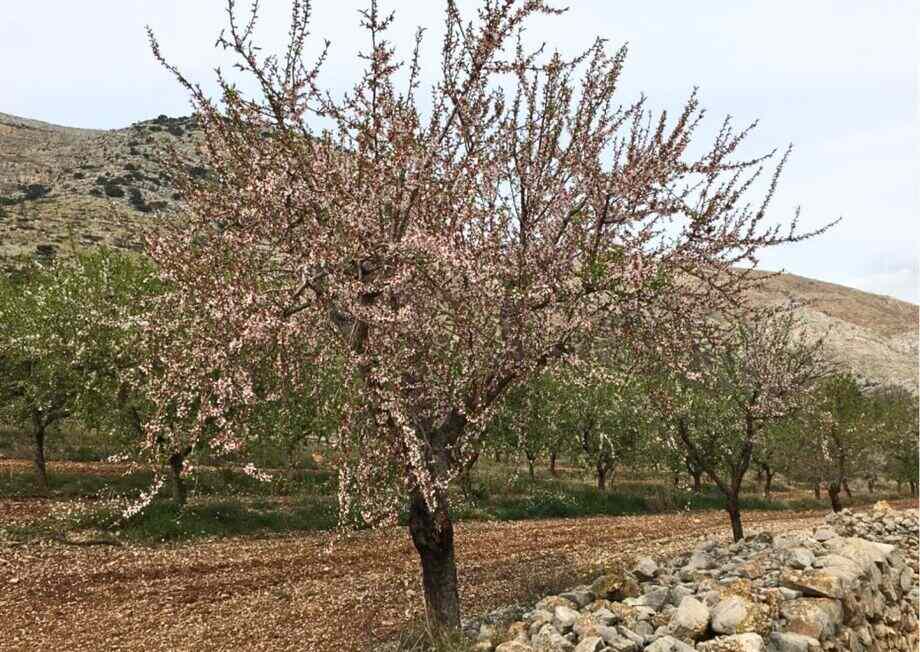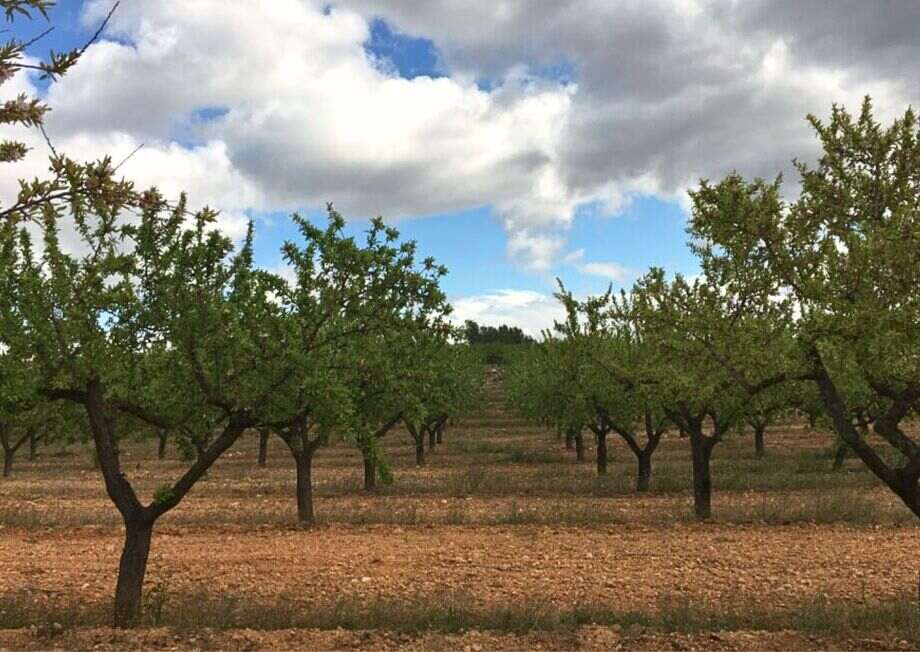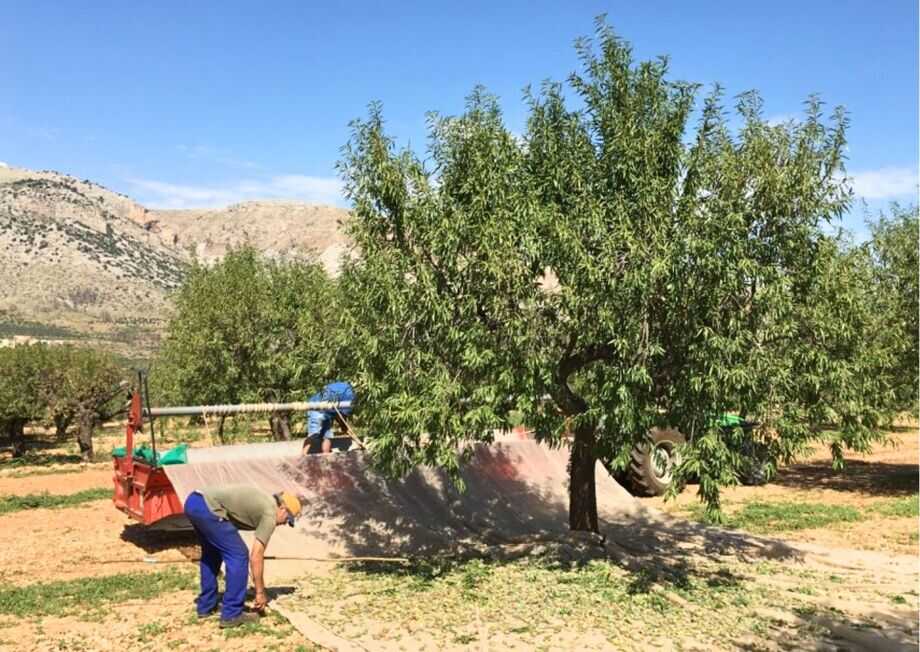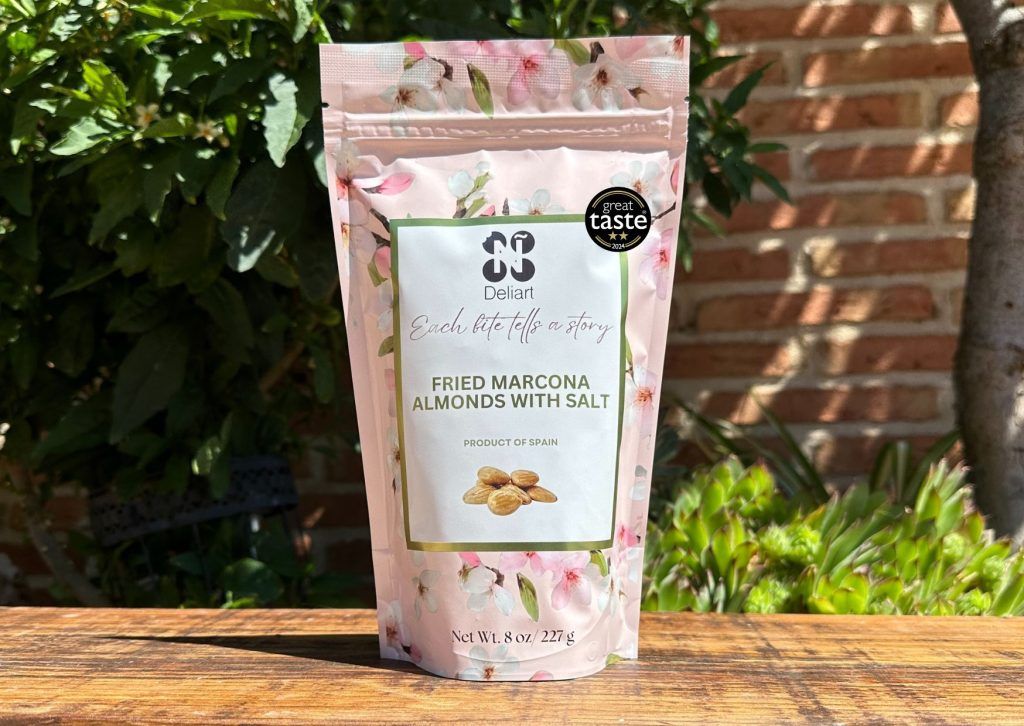Introduction
How long have almond farmers been cultivating Marcona almonds? What makes this variety so special, and why do they continue to maintain its production despite the challenges? Behind every Marcona almond lies the rich history of Deliart Marcona Almonds, a name that represents quality, tradition, and sustainability. This highly prized variety has been cultivated for over 2,000 years, often passed down from generation to generation. Without the deep-rooted commitment of dedicated farmers, this exceptional almond variety could be lost, as its yield is significantly lower than that of more modern, self-fertile varieties.
Despite the difficulties, the Marcona almond remains a preferred choice among discerning consumers who appreciate its rich flavor, high oil content, and unique texture. Below, we explore the key factors contributing to the continued success of Marcona almond farming and the challenges faced by those who keep this tradition alive.

1. Cultivation on Traditional Dry Farming Land: A Sustainable Approach
Marcona almonds are predominantly cultivated in traditional dryland farming systems, where rainfall serves as the primary source of hydration. This practice significantly reduces the need for irrigation, making it an environmentally sustainable choice. However, the yield and quality of the harvest depend heavily on weather conditions, with drier seasons leading to smaller but often more flavorful almonds. The reliance on natural precipitation aligns with sustainable agricultural practices, ensuring the responsible use of water resources in an era where conservation is increasingly crucial.
2. Rural Economy and Family Tradition
The cultivation of Marcona almonds plays a significant role in supporting rural economies, particularly in regions such as the Valencian coast, Castilla-La Mancha, and Aragón. Many almond farms are family-run, with knowledge and techniques passed down through generations. This tradition not only maintains the high quality of Marcona almonds but also sustains local communities by providing employment and economic stability. In 2024, the production of Marcona almonds reached approximately 3,000 tons of grain, reflecting the dedication of these rural farming communities.

3. Biodiversity and the Essential Role of Bees
A crucial aspect of Marcona almond farming is biodiversity, particularly the role of bees in pollination. Unlike some self-pollinating almond varieties, Marcona almonds require cross-pollination with another almond variety to develop fruit properly. This necessity makes bees indispensable to the cultivation process. By maintaining healthy bee populations, farmers ensure successful pollination, which leads to higher yields and improved almond quality. Additionally, the preservation of natural landscapes within almond orchards helps sustain other local flora and fauna, further enhancing biodiversity.
4. Traditional Harvesting Methods: Eco-Friendly Practices
The harvesting of Marcona almonds remains rooted in tradition, with many farmers still employing the classic “vara y mantas” technique. This method involves gently striking the branches with a stick (vara) to dislodge the almonds onto mats (mantas) spread below the trees. This approach minimizes environmental impact, as it does not require heavy machinery that could disrupt the soil or increase carbon emissions. In some cases, a mechanical “umbrella” device is used to shake the tree, catching the almonds in a controlled manner. Regardless of the method, harvesting Marcona almonds remains an eco-conscious practice that respects both the land and the heritage of almond farming.

Insights from Our Farmers
We wanted to hear directly from our farmers, so we asked them about their experiences and challenges in cultivating Marcona almonds. Here are their firsthand responses:
- What are the main challenges in producing this almond?
Maintaining the tradition and heritage of this variety. It is more expensive than others due to its lower field yield. - What is the most rewarding aspect of working with this almond variety?
The value of serving a demanding and specialized market. Discerning consumers appreciate the flavor and quality of this variety. - What are the biggest challenges you face in your daily work?
Water scarcity and the investments and costs associated with irrigation. - How do you see the future of Marcona almond production in your region?
Concerning. As I mentioned, for now, it is based on tradition and maintaining the fields due to family heritage.
Conclusion
At Deliart, we proudly support traditional agriculture, recognizing its vital role in preserving the quality and uniqueness of our almonds. The cultivation of Marcona almonds exemplifies how heritage farming aligns with sustainability. We honor this legacy by maintaining time-honored methods to ensure superior almonds for a discerning market. Despite challenges like lower yields, high production costs, and water scarcity, our farmers remain committed to excellence, upholding the authenticity that defines our brand.

By staying committed to time-honored agricultural practices, we ensure that each Marcona almond reflects our dedication to tradition, sustainability, and premium quality. As demand for high-quality almonds grows, Deliart Marcona Almonds will continue to lead the way, ensuring that this exceptional variety remains available for future generations to enjoy.



